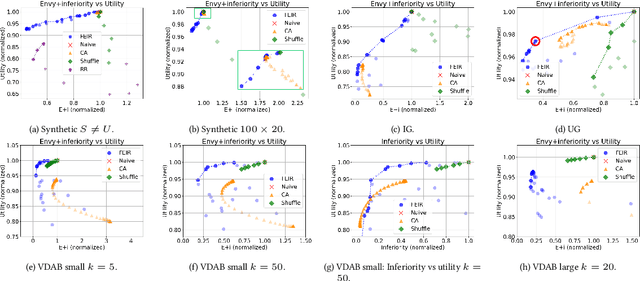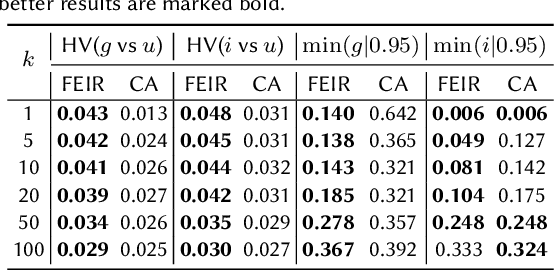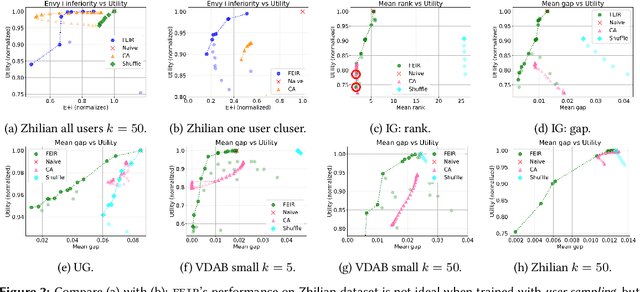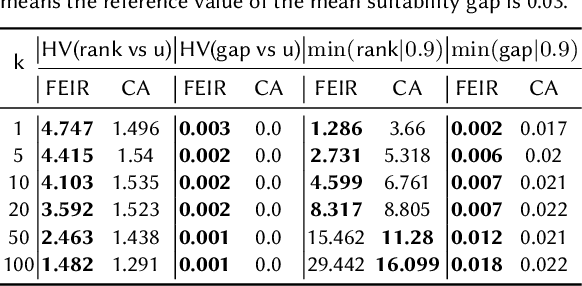FEIR: Quantifying and Reducing Envy and Inferiority for Fair Recommendation of Limited Resources
Paper and Code
Nov 08, 2023



In settings such as e-recruitment and online dating, recommendation involves distributing limited opportunities, calling for novel approaches to quantify and enforce fairness. We introduce \emph{inferiority}, a novel (un)fairness measure quantifying a user's competitive disadvantage for their recommended items. Inferiority complements \emph{envy}, a fairness notion measuring preference for others' recommendations. We combine inferiority and envy with \emph{utility}, an accuracy-related measure of aggregated relevancy scores. Since these measures are non-differentiable, we reformulate them using a probabilistic interpretation of recommender systems, yielding differentiable versions. We combine these loss functions in a multi-objective optimization problem called \texttt{FEIR} (Fairness through Envy and Inferiority Reduction), applied as post-processing for standard recommender systems. Experiments on synthetic and real-world data demonstrate that our approach improves trade-offs between inferiority, envy, and utility compared to naive recommendations and the baseline methods.
 Add to Chrome
Add to Chrome Add to Firefox
Add to Firefox Add to Edge
Add to Edge